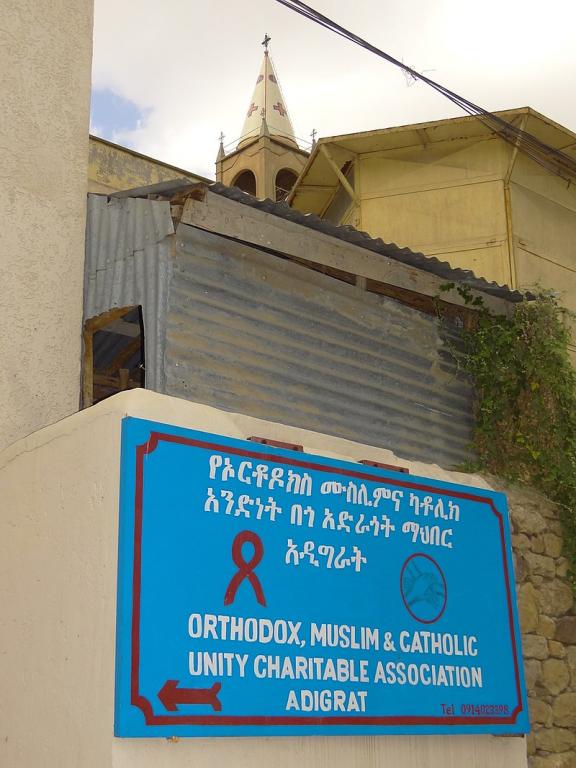Charitable giving is among the important religious practices we have in common. Attending Sukkah ceremony at my neighborhood synagogue last week during the festival of Sukkot was another reminder of how much we have in common- the reading of the Torah, the prayers, the mannerism during the service, circumambulating the sanctuary counter clockwise seven times and much more. I felt completely at home.
What does the Sukkah service have to do with the topic here? Probably nothing directly but it got me thinking about other things we have in common and since I posted on Salat and daily prayer about a week ago, Zakat and charitable giving made most sense as the next subject.
Every religion practices some form of charitable giving. The concept of charity is much more than “being kind to the needy” in Islam and Judaism. They are considered mandatory and a religious duty to bring about social justice, prosperity and equality in society. Alms giving is not considered obligatory by Christians but deemed an essential part of faith.
In Islam, there are three forms of charitable giving. Zakat is obligatory. Sadaqah is above and beyond the mandatory giving and is highly recommended. Khums, according to the Shia Muslim school of thought, is also mandatory. Tzedakah is obligatory in Judaism and considered one of the highest forms of religious commands. Tzedakah and Sadaqah have similar etymological roots.
Islam has institutionalized the charitable giving in the name of God. Zakat literally means to purify and refers to purifying one’s wealth and in the process of doing so, the soul. Purification of the soul implies freedom from selfishness and greed, and to un-attach one’s self from worldly wealth and to seek nearness to God. It helps fulfill the societal obligations of the individual. It is intended to prevent wealth hoarding and meets the needs of the poor in the community through altruistic acts
Zakat is one of the five pillars of Islam and an act of worship, frequently emphasized in the Qur’an alongside the command to establish Salat (obligatory prayers). It is due as a fixed proportion of one’s surplus wealth and earnings after meeting one’s financial obligations and liabilities. It is mentioned by name thirty times alongside Salat, in addition to numerous other references to spend in the way of God.
And be steadfast in prayer; practice regular charity; and bow down your heads with those who bow down (in worship). 2:43
And be steadfast in prayer and regular in charity: And whatever good you send forth for your souls before you, you shall find it with Allah: for Allah sees well all that you do. 2:110
God is the recipient of charitable giving:
Do they not know that Allah does accept repentance from His servant and receives their gifts of charity (Sadaqaat), and that Allah is verily the Oft-Returning (to mercy), Most Merciful? 9:104
In the following verse, Zakat and other giving are termed Qarz-e-Hasna or “a loan to God,” or “a beautiful loan”, which will be paid back on the Day of Judgment in the form of mercy and forgiveness to the donor, and the reward will be multiplied many times over.
…Read, therefore, as much of the Qur’an as may be easy (for you); and establish regular Prayer and give regular Charity; and loan to Allah a Beautiful Loan [qarz-e- hasna]. And whatever good you send forth for your souls you shall find it in Allah’s Presence—yes, better and greater, in reward and seek the Grace of Allah: for Allah is Oft-Forgiving, Most Merciful. 73:20
Who is it that would loan Allah a goodly loan so He may multiply it for him many times over? And it is Allah who withholds and grants abundance, and to Him you will be returned. 2:245
In fact, one cannot be righteous until he gives in the way of God to the needy:
By no means shall you attain to righteousness until you spend (benevolently) out of what you love; and whatever thing you spend, Allah surely knows it. 3:92
Giving Openly Is Fine; Giving in Secret Is Even Better
Those who (in charity) spend of their goods by night and by day, in secret and in public, have their reward with their Lord: on them shall be no fear, nor shall they grieve. 2:274
The Qur’an encourages giving openly and privately, but giving secretly, without showing off, is even better. Giving, for the purpose of showing off is highly undesirable.
If you do deeds of charity openly, it is well; but if you bestow it upon the needy in secret, it will be even better for you, and it will atone for some of your bad deeds. And God is aware of all that you do. 2:271
And (God does not love) those who spend their possessions on others (only) to be seen and praised by men, while they believe neither in God nor in the Last Day. 4:38A person who practices charity so secretly that his left hand does not know what his right hand has given. Hadith of prophet Muhammad
















